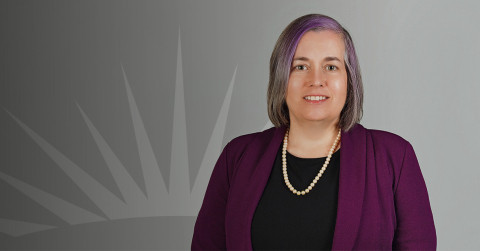
Being a Trusted Business Advisor
I had an interesting conversation with a colleague the other day about the difference between being a consultant and a trusted advisor.
There’s been a lot of ink spilled over the difference. Increasingly, companies have marketed advisory services as a replacement or supplement to consulting services. Although the distinction between the two can seem unclear, there is separation. I have found that framing my work as a trusted advisor rather than as a consultant has enabled me to better serve my clients.
Certainly, consultants serve a critical role for companies in every industry. They help solve problems, drive innovation, manage change and facilitate implementation of critical business processes.
In the actuarial space, consultants leverage a sophisticated set of technical, mathematical and analytical skills. We do our work with precision and accuracy, and with deep understanding of risk management, pricing, reserving and myriad other insurance concepts and practices.
While knowledge and ability are essential, they can have practical limitations. There may even be situations when simply acting as a consultant might fall short of client expectations.
Sometimes, a client must make a fundamental change to a business practice. Other times, they may need to take steps to remediate business-critical financial challenges. There are situations in which they need to make long-term realignments for the health of their organization or its culture. And absolutely, on some occasions, very difficult conversations need to take place. The client needs to see a holistic picture of what is best for them, their company and the company’s stakeholders.
Those are the times when a client may turn to a consultant for guidance. But that’s when being a consultant may not be enough.
Those are times when a consultant must become a trusted advisor.
To be a trusted advisor is to be a partner and steward of your client’s business. It requires you to understand your client’s challenges as if they are your own. It means getting as excited for your client’s opportunities as you would your own. It means actively listening. It means mobilizing your expertise to guide your clients on the right path. All of this must happen without the independence of your actuarial opinions being influenced by this sense of connection.
At my firm, Pinnacle Actuarial Resources, we call that empathetic customer service, and it is a pillar of our culture.
I’ve witnessed over the course of my career while working with great companies and agile minds that empathetic customer service makes consultants better. It’s a trait that all trusted advisors share.
Clients often demand specific things that a consultant’s toolbox may lack: candor and transparency among them. When a young consultant or actuary inquires about the skills that they need to develop to be a good consultant, I generally suggest they rephrase the question.
Rather, the better question is, “What are the skills [I] need to become a trusted business advisor?” For me, that’s the right question.
My answer is, invariably, empathy and integrity. And that is, often, just enough.



